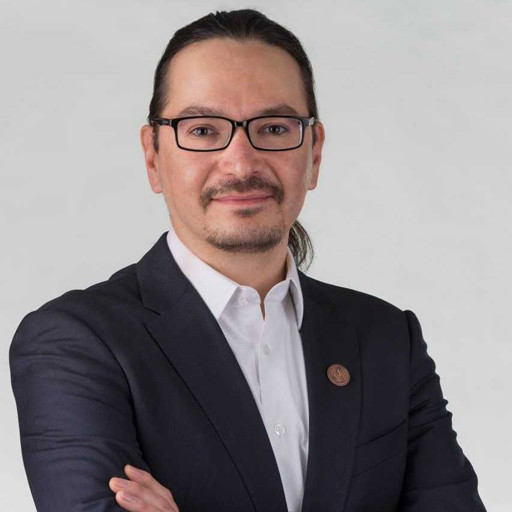NCTR hosts online panel on reconciliation
Virtual dialogue held on reconciliation and 94 Calls to Action
Despite the ongoing COVID-19 pandemic, the National Centre for Truth and Reconciliation (NCTR) continues to offer education events, with the Allyship in Reconciliation virtual event held on Oct. 7.

Kevin Lamoureux, a University of Winnipeg instructor and panellist at the Allyship in Reconciliation virtual conference. Supplied photo.
Kaila Johnston, acting supervisor of education, outreach and public program for NCTR and one of the organizers of the event, says it came together through a partnership between NCTR and Health Canada, in an effort to “develop a learning event for public servants.”
“One of the most frequent questions we’re asked at the centre is ‘what can we do?’” Johnston says.
In response, they created a series of learning dialogues and sessions. This discussion on being an ally in reconciliation was hosted by Kevin Lamoureux, an instructor at the University of Winnipeg and a well-known speaker on colonization and reconciliation in Canada, with a panel of renowned guests discussing the 94 Calls to Action identified by the Truth and Reconciliation Commission.
The panellists included Sherri Chisan, president of University nuhelot’įne thaiyots’į nistameyimâkanak Blue Quills (UnBQ); Harlan Pruden, educator for the British Columbia’s Centre for Disease Control’s Chee Mamuk program and managing editor of the Two Spirit Journal; and Edna Elias, educator and former politician from Qurluqtuq, who served as the fourth commissioner of Nunavut (2010 to 2015) and was a 2019 recipient of the Order of Canada.
Panellists spoke on their individual experiences and expertise and also answered questions from audience members who registered to attend the event. Topics included the need to acknowledge the impact of colonization, ways to decolonize programs and policies, the importance of preserving Indigenous culture and tradition and practical suggestions on how to become a stronger ally.
“Although a good portion of the public is able to see that they have a part in supporting reconciliation, they often don’t know where to start,” Johnston says.
“Reconciliation at its root is about our relationships with one another,” Lamoureux says. So having these dialogues and being open and willing is crucial to the reconciliation process.
“Reconciliation is about not feeling guilty for something we didn’t do, but rather taking responsibility for the future,” Lamoureux says. Allies educating themselves and beginning these conversations is a crucial step. Lamoureux points out that Grand Chief Littlechild, one of the Truth and Reconciliation commissioners, said that 72 of the 94 Calls to Action are about education and awareness.
Johnston says a great place to begin is to get informed, and she suggests that people watch, listen and read credible news sources to stay up to date on current issues.
NCTR offers presentations and workshops around the history of residential schools, the Truth and Reconciliation Commission and the 94 Calls to Action for anyone who wants to become more involved and active in social justice and reconciliation.
Lamoureux suggests that people who want to be allies in reconciliation should think about their relationships with themselves and with Canada.
“Reconciliation is a gift that has been given to us by survivors so that we can all collectively be part of leaving behind a better Canada,” Lamoureux says.
Published in Volume 75, Number 05 of The Uniter (October 8, 2020)







